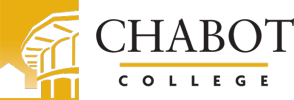
Engineering Technologist
This program map from the 2024-2025 catalog year represents one possible pathway to complete this program. Your pathway may vary depending on your transfer plans and also previous college credit, including AP Test scores, concurrent enrollment courses and high school articulated courses.
I'm ready to get started. What do I do next?
- Review this program map to get an overview of the required courses
- Meet with a counselor to develop your customized student education plan www.chabotcollege.edu/counseling
- Use DegreeWorks, an online student education planning tool, to track your progress toward graduation www.chabotcollege.edu / admissions / degreeworks
Students completing the Certificate of Achievement as an Engineering Technologist develop the skills for many entry-level engineering positions, including, optimizing systems, production, manufacturing, sustainability, setting up and conducting experiments for research and development firms, and design analysis. Students will be competent in advanced software, equipment, and problem-solving design.
What can I do with this major?
Completion of this certificate prepares students for a career with Industrial engineering, manufacturing, research, and product design firms. This certificate is especially beneficial for students applying to research apprenticeships, research & development firms, and technology companies.
This certificate gives you a competitive advantage when applying to entry-level engineering positions and can increase your hourly wage earnings. Engineering Technologists are projected to earn $30 - $39 per hour and have over 700 annual job openings.
Learning and Career Pathway
- Science, Technology, Engineering, Mathematics & Environment
Icon Key
Semester 1
PHYS 7B or PHYS 4B (Choose one)
Semester 2
MTH
4
Elementary Differential Equations
List A Course #1
List A Course #2
List A
Complete a minimum of 6 units from the list below: